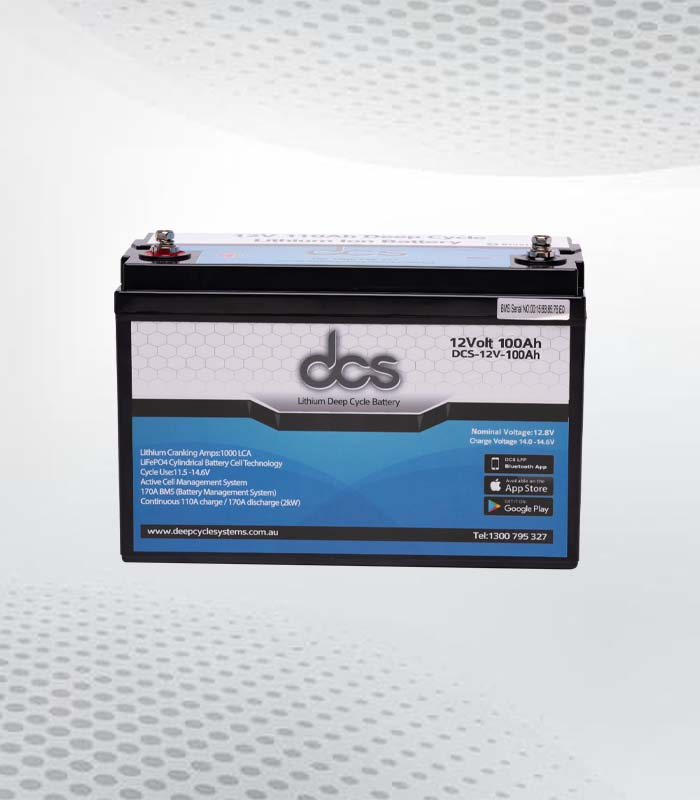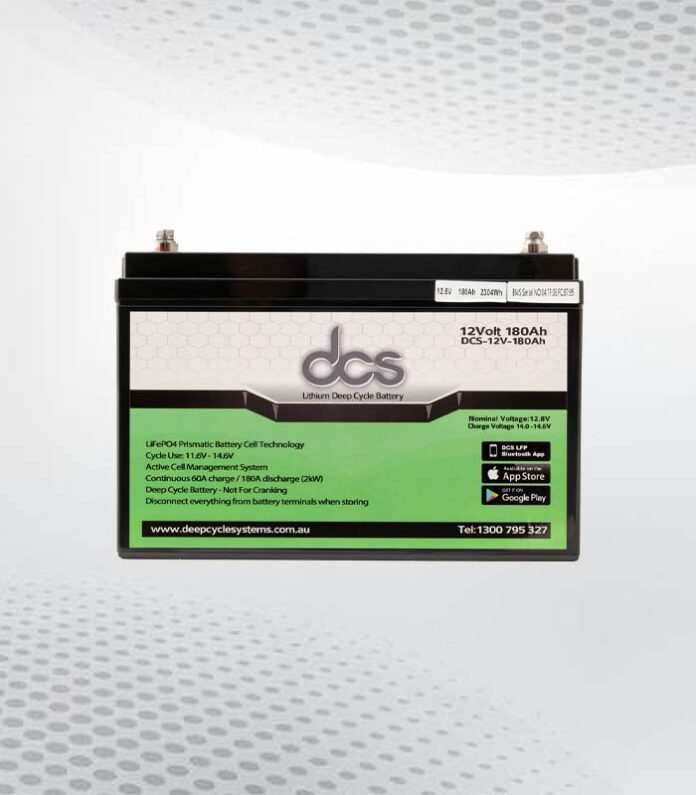When powering your motorhome, having a reliable and long-lasting battery is crucial. This is why many motorhome owners turn to lithium batteries as their preferred choice. While lead-acid batteries have been the traditional option for RVs, lithium batteries are quickly gaining popularity due to their numerous advantages. This blog post will discuss the benefits of using a Lithium Battery for Motorhome and why it may be a wise investment for your next camping adventure.
What are Lithium Batteries?
Lithium batteries are rechargeable batteries that are becoming increasingly popular in motorhomes. Unlike traditional lead-acid batteries, which use a mixture of lead and sulfuric acid to generate power, lithium batteries utilize lithium-ion technology. They store and release energy using lithium ions between the positive and negative electrodes.
One of the main advantages of lithium batteries is their impressive energy density. They can store more energy in a smaller and lighter package compared to lead-acid batteries. This is especially important for motorhome owners who need to maximize their available storage space.
Lithium batteries are:
- A technologically advanced alternative to traditional lead-acid batteries.
- Offering increased energy density.
- Longer lifespan.
- Faster charging times.
- They are quickly becoming the preferred choice for motorhome owners looking for a reliable and efficient power source for their adventures.
Exploring the Advantages of Lithium Battery Motorhome
If you’re considering upgrading your motorhome battery, look no further than a lithium battery. Lithium Battery Motorhome offers a range of advantages that make them a top choice for motorhome owners.
First and foremost, lithium batteries are known for their incredible energy density. They can store more power in a smaller, lighter package, allowing you to maximize your available storage space. This is especially important for motorhome owners carrying essential items and supplies on their travels.
In addition to their energy density, lithium batteries have a longer lifespan than traditional lead-acid batteries. They can endure hundreds, and even thousands, of charge cycles, meaning you will have to replace them less often. This saves you money in the long run and gives you peace of mind, knowing that your battery will last for many adventures to come.
Another advantage of lithium batteries is their faster charging times. They have a higher charging efficiency, allowing you to recharge them quickly and return to the road faster. This is especially beneficial for motorhome owners who rely on short charging periods during their trips.
The Downsides of Traditional RV Batteries and Why Lithium is Superior
Regarding traditional RV batteries, there are a few downsides that make lithium batteries a superior choice for motorhome owners. Firstly, traditional lead-acid batteries are heavy and bulky, taking up valuable storage space in your motorhome. This can be a major inconvenience, especially for those who want to travel with all their essential supplies.
Secondly, lead-acid batteries have a limited lifespan compared to lithium batteries. They typically last only a few years and require frequent replacements, which can be costly and time-consuming. On the other hand, lithium batteries have a significantly longer lifespan, enduring hundreds or even thousands of charge cycles, making them a more reliable and cost-effective option in the long run.
Another downside of traditional RV batteries is their slower charging times. Lead-acid batteries take longer to recharge, which can be frustrating if you’re on the go and need to get back on the road quickly. On the other hand, lithium batteries have a higher charging efficiency, allowing for faster and more efficient recharging.
Overall, the downsides of traditional RV batteries, including their weight, limited lifespan, and slow charging times, make lithium batteries the superior choice for motorhome owners. By upgrading to a lithium battery, you can enjoy the benefits of increased energy density, longer lifespan, and faster charging times, ensuring a more efficient and enjoyable camping experience.
Key Considerations When Switching to a Lithium Battery for Your Motorhome
Switching to a lithium battery for your motorhome is a wise decision, but there are a few key considerations to remember. Firstly, you’ll need to ensure that your motorhome’s electrical system is compatible with lithium batteries. While most modern motorhomes are, older models may require some modifications. It’s important to consult with a professional or your motorhome manufacturer to ensure a smooth transition.
Another consideration is the initial cost of a lithium battery. While they may be more expensive upfront than traditional lead-acid batteries, they offer long-term cost savings due to their longer lifespan and higher efficiency. Consider your budget and the potential savings in replacements and maintenance over time.
Additionally, it’s crucial to understand the charging requirements of a lithium battery. They require a specific charger that is designed for lithium batteries. Invest in a quality charger to optimize the charging process and prolong the battery’s lifespan.
Lastly, take into account the weight of the lithium battery. While lighter than lead-acid batteries, they may still add some weight to your motorhome. Consider your motorhome’s overall weight distribution and towing capacity to ensure it can handle the additional weight.
Tips on Maintaining and Extending the Lifespan of Your Lithium Motorhome Battery
To ensure your lithium motorhome battery continues to perform at its best and lasts for years to come, here are some essential tips for maintenance and lifespan extension:
- Regularly monitor the battery’s state of charge: Keeping track of your battery’s charge level will help prevent overcharging or discharging, which can shorten its lifespan. Invest in a battery monitor or management system to easily monitor its state.
- Optimize charging practices: Use a lithium-specific charger that matches your battery’s specifications. Avoid using chargers designed for lead-acid batteries, as they may not provide the optimal charging profile. Follow the manufacturer’s instructions for charging rates and avoid rapid charging or discharging cycles.
- Store the battery properly: When not in use, store your lithium battery in a cool, dry location away from direct sunlight. Extreme temperatures can affect its performance and longevity.
- Perform regular maintenance checks: Inspect your battery for any signs of damage, such as swelling or leaks. Clean the battery terminals and connections regularly to prevent corrosion.
- Avoid deep discharges: While lithium batteries can handle deeper discharges compared to lead-acid batteries, it’s still best to avoid fully depleting them whenever possible. Deep discharges can stress the battery unnecessarily and reduce its lifespan.
Maximizing Your Motorhome’s Energy Efficiency with Lithium Batteries
Lithium batteries are the way to go when it comes to maximizing your motorhome’s energy efficiency. With their advanced technology and superior performance, lithium batteries can significantly enhance the energy efficiency of your motorhome.
One of the key ways lithium batteries boost energy efficiency is through their impressive energy density. They can store more energy in a smaller and lighter package compared to traditional lead-acid batteries. This means you can power more appliances and devices in your motorhome without sacrificing valuable storage space or adding unnecessary weight.
Additionally, lithium batteries have a higher charging efficiency, allowing for faster and more efficient recharging. This means less time waiting for your batteries to charge and more time enjoying your adventures on the road.
Furthermore, lithium batteries are designed to provide a more consistent and reliable power supply. They maintain a steady voltage output throughout their discharge cycle, ensuring optimal performance for your motorhome’s electrical system.
Comparing the Costs of Lithium and Traditional RV Batteries
When comparing the costs of lithium batteries and traditional RV batteries, there are a few key factors to consider.
Firstly, it’s important to acknowledge that lithium batteries have a higher upfront cost than traditional lead-acid batteries. However, it’s crucial to look beyond the initial price tag and consider the long-term savings. Lithium batteries have a significantly longer lifespan, enduring hundreds or even thousands of charge cycles. This means you won’t have to replace them as frequently as traditional batteries, ultimately saving you money in the long run.
Additionally, lithium batteries offer higher efficiency and faster charging times. This means you can recharge your battery more quickly, allowing you to return to the road faster and making your camping experience more enjoyable. On the other hand, traditional batteries tend to have slower charging times, which can be frustrating when you’re on the go.
Lithium batteries may have a higher upfront cost, but their longer lifespan, efficiency, and faster charging times make them a cost-effective investment for your motorhome. By considering the long-term benefits and savings, it becomes clear that lithium batteries are a superior choice for any motorhome owner.
FAQs
Have some questions about using lithium batteries for your motorhome? We’ve got you covered! Here are some commonly asked questions to help you gain a better understanding:
Q: How long do lithium batteries typically last?
A: Lithium batteries have a significantly longer lifespan than traditional lead-acid batteries. They can endure hundreds or even thousands of charge cycles, making them a durable and long-lasting investment.
Q: Are lithium batteries safe to use in motorhomes?
A: Yes, lithium batteries are safe to use in motorhomes when properly installed and maintained. To ensure safe operation, they are designed with built-in safety features, such as temperature control and overcharge protection.
Q: Can I use a lithium battery with my existing motorhome electrical system?
A: In most cases, yes. However, ensuring that your motorhome’s electrical system is compatible with a lithium battery is important. Older models may require modifications or additional equipment to accommodate the specific charging requirements of a lithium battery.
Conclusion
In summary, using a lithium battery for your motorhome offers many benefits, making it a superior choice over traditional lead-acid batteries. The impressive energy density of lithium batteries allows you to store more power in a smaller and lighter package, maximizing your available storage space and reducing unnecessary weight in your motorhome.
| Other Good Articles to Read |
| Blogs Rain |
| Cme Blog Spot |
| Garcias Blogs |
| Yyc Blogs |
| Guiade Blogs |
| Blogs-Hunt |
| Impact-Blog |
| Smarty Blogs |
| Ed Blog |
| Mo Blogs |
| Blogs Em |
| Blogs T |

